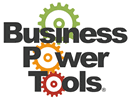Learn the Language of Media / Public Relations
In the battle to gain positive publicity for your product and your company, you don’t have the luxury of rambling. Too many products are competing for too little editorial space. To get the favorable attention of reporters, you must understand what information the press wants and formulate a clear and concise message.
Gain Credibility: Tell the Truth
How do you get reporters to listen to your message and trust you?
Tell the truth!
Reporters for newspapers, magazines, radio and TV are bound to find out about a major problem. If you lie or try to hide it, you will lose your number one asset – your credibility. You may even gain credibility if you bring the problem to their attention.
Avoid Hype
If you want to turn off your audience, use hype in your press releases. Hype is overstatement. Hype makes claims that can’t be met. Hype means nothing.
Radio reporter Stephen Banker said, “The press doesn’t need to know that a product is super terrific or any other descriptive words. They need to know what it does. All they need to know are the facts.”
If you use hype, reporters will throw away the press release on principle. They know people use buzzwords because there isn’t any hard information in the release. Press releases using buzzwords label a company as amateur, so avoid these words and phrases:
Hype to Avoid
- Next generation
- Revolutionary
- Trend setting
- Rewriting the rules
- One of a kind
- Unique
- State of the Art
- Leading Edge
- New Age
- Incredible
- Ahead of its time
If your product can turn last night’s leftovers into gasoline for your car, you don’t need hype – the press will wake up and want to write about it! If you tell reporters you have a “one of a kind” product and there is nothing like it, you are waving a red flag in front of them: “You are challenging us to find another program that does the same thing,” said Chris Shipley, an executive editor with Ziff-Davis Publishing Company. The irony is, they probably will find a competing product – and it could be better than yours.
Features Versus Benefits
People buy products because of the benefits they think they will receive. It’s surprising, then, that so much publicity material focuses on the features of the product instead of the benefits.
So what is the difference? Here’s an example: a feature of a television set is a 27-key pad remote control unit; the benefit is the ability to change the station, volume and color without getting up from your chair.
